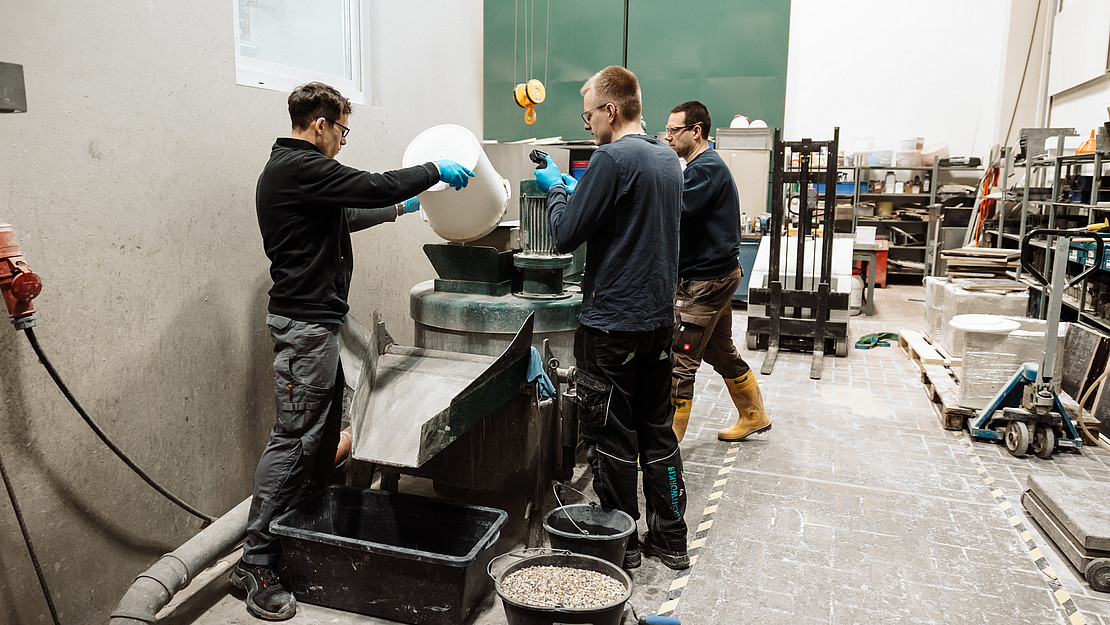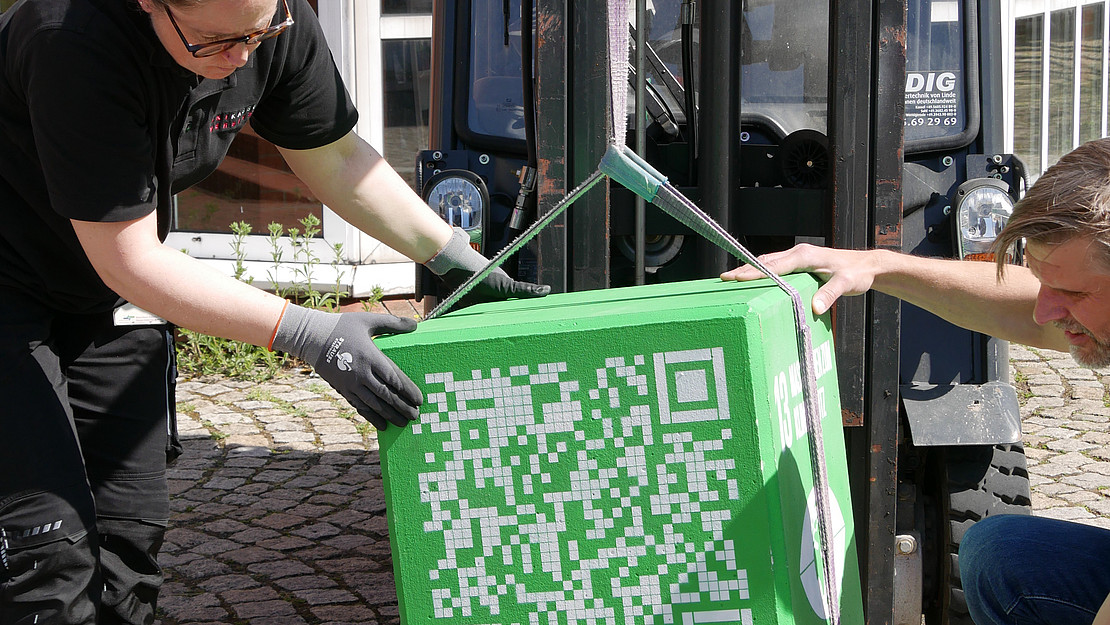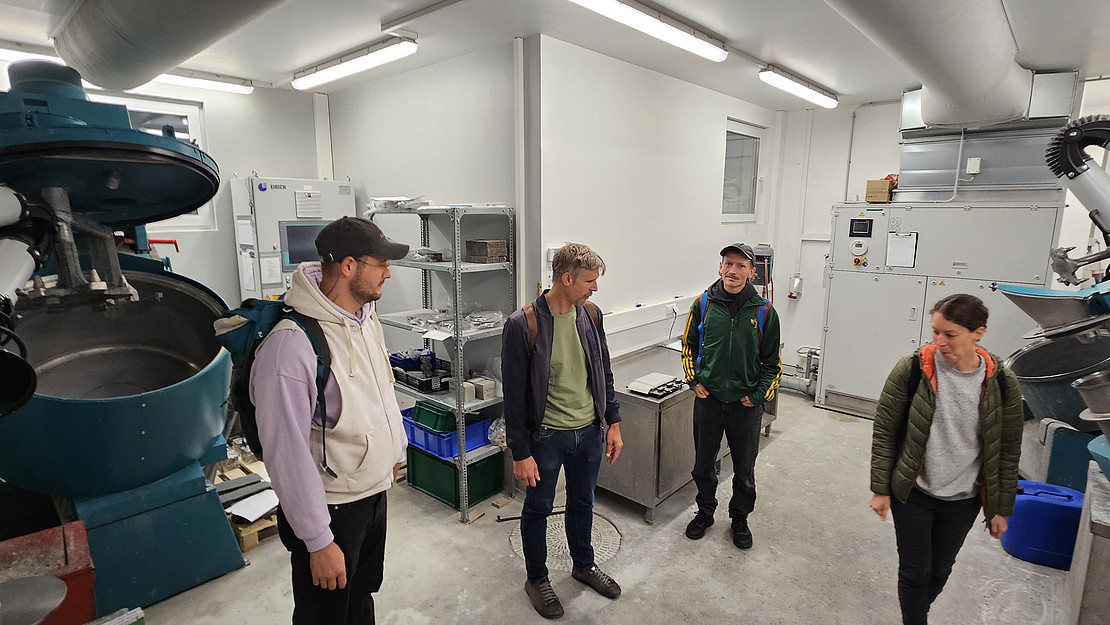Sustain Tour
The content on this page was translated automatically.
The idea behind the tour
The idea for the Sustain Tour was born in 2023 during the Green Office's first ideas workshop. The central question then, as now, was: "How can we bundle the university's sustainability activities and make them more visible?". The aim was not only to make the university's diverse sustainability activities and projects better known and more visible, but also to make them tangible and easily accessible for interested parties, new students and employees.
Within the Sustain Group "Sustainability Communication", the participatory development of a sustainable campus tour, the "Sustain Tour", was launched, which received great support from students and employees of the university. The project was supported by the start-up kinferno (formerly historyHYPE), the Institute of Structural Engineering, the Department of Transport Planning and Traffic Systems, the University Library, the AStA, University Sports and the SDG+Lab.
We would like to thank everyone involved! - In particular to the dedicated team from the start-up kinferno UG, who developed and elaborated the idea for a sustainability tour into a coherent overall concept. In addition to the designs for the seating cubes and the signs, this also includes the media design of the guide app as well as the format and production of the audio content.

The Sustain Tour is a sustainability tour that makes the topic of sustainability on campus along the UN's 17 SDG goals visible, audible and tangible.
17 SDG goals = 17 listening stations
The 17 Sustainable Development Goals (SDGs) of the United Nations are presented in a vivid way at 17 stations, which are identified by colorful information boards and seating cubes and are spread across the entire campus. The special thing about it: at each station, interviews with researchers, institutions and initiatives related to sustainability can be listened to via a web app. In a conversation with Julia Hauser, a psychology student, the interviewees talk about their work and how they are specifically contributing to achieving the SDGs.

Environmentally friendly implementation of the Sustain Tour elements
The Sustain Tour concrete seating cubes were made from cement-reduced concrete (eco-concrete) with the support of a student project at Faculty 14, within the Department of Construction Materials and Construction Chemistry from the Department of Civil and Environmental Engineering. As part of the course Building with Inorganic Binders (Dr. Alexander Wetzel), a group of students developed alow-CO2 concrete and produced cement-free concrete seating cubes under strict sustainability criteria.
The cement-free concrete produced especially for this project has a significantly lowerCO2 footprint than conventional concrete. Under the guidance of concrete laboratory manager Dominik Hübenthal, the students carried out a series of tests and trials to determine the properties of the fresh and hardened concrete and, in particular, its durability.
The wooden seating surface was designed and built by Toni Burmeister, the workshop manager of the university carpentry department.
 Image: Karen Marschinke
Image: Karen MarschinkeWe are delighted to be able to bring this interdisciplinary project to life on campus after more than two years of intensive work.
Sustainable development and the implementation of the SDGs require a great deal of attention, which must be focused on humanitarian emergencies such as global poverty, among other things. It is currently more important than ever to secure peace, realize democracy, make globalization fair and protect the environment. The SDGs are a good instrument for creating awareness and providing impetus for sustainable transformation. Even if they are not binding and there is no well-defined strategy that contributes to achieving the goals, they show which grievances should be addressed globally and create an awareness of the need for international and interdisciplinary cooperation.













